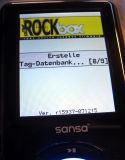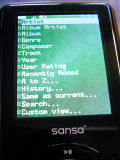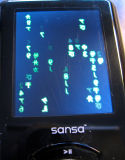Sorry, but this one has to be in German!
Die Webkrauts haben zu Beginn der Bundesligasaison 2007/08 die Webseiten aller 36 Erst- und Zweitbundesligisten auf moderne Webstandards getestet. In zehn Kategorien wie Validität, Semantik, Schriftgröße oder JavaScript-Einsatz konnten die Seiten punkten, so dass es am Ende maximal 30 Punkte zu holen gab. Das (ernüchternde) Ergebnis: Spitzenreiter Mainz 05 kam auf sehr gute 26 Punkte, doch immerhin ein Viertel der Vereine musste sich mit einer einstelligen Punktzahl begnügen.
Die Idee der Webkrauts fand ich wirklich gut, und so beschloss ich, die Webseite meines Lieblinlgsvereins, des SV Waldhof Mannheim, hinsichtlich des Einsatzes von Webstandards unter die Lupe zu nehmen. Denn diese Webseite sollte zum Start der Oberliga-Saison in neuem Glanz erstrahlen. Leider verzögerte sich der Releasetermin des neuen Webauftritts um Wochen, aber als leidgeprüfter Waldhof-Supporter lässt man sich durch solche Petitessen nicht aus der Ruhe bringen. Außerdem gab es in der Zwischenzeit durchaus wichtigere Fragen zu klären. Nun aber ist die Webseite online, und ich habe mich mal an eine Untersuchung gewagt.
Beim Besuch der Webseite des SVW gilt es zunächst, die in blau gehaltene Vorschaltseite wegzuklicken, bevor man den eigentlichen Inhalt erreicht. Dort verrichtet im Hintergrund das CMS Joomla seinen Dienst, und das sieht man auch, denn Layout und Design erinnern sehr an altbackenes Standard-CMS-Design. Immerhin ist das ein Fortschritt gegenüber der ehemaligen Flash-basierten Seite. Ein Blick auf den Quelltext offenbart, dass hier offenbar ein Standardtemplate ohne allzu große Sachkenntnis mittels Layout-Tabellen und dergleichen angepasst wurde. Auffällig ist auch ein per JavaScript durchscrollender Shopbereich links unten. Valides XHTML, wie in der Dokumenttypdefinition versprochen, liefert die Seite (fast schon erwartungsgemäß) nicht, und auch bezüglich der Semantik liegt einiges im Argen: Korrekt ausgezeichnete Überschriften und andere sinnvolle Elemente sind Mangelware.
Die Navigation immerhin ist übersichtlich und über das Menü links auch ohne JavaScript gut zu bedienen, auf überflüssige Effekte wurde größtenteils verzichtet. Auch bei großer Schrift bleibt die Seite bis auf die rechte Spalte les- und benutzbar, allerdings macht dies aufgrund der festen Breite des Layouts nicht sonderlich viel Spaß. Die wichtigsten Bilder sind mit <alt>-Attributen versehen.
Alles in allem hätte es schlimmer kommen können. Die neue Webseite des SVW ist zwar nicht unbedingt eine Augenweide, aber funktionell und übersichtlich. Der Code hätte durchaus sauberer, semantischer und moderner sein können - er entspricht, sozusagen, dem Liganiveau. Andererseits hätte sich die Seite in der Webkrauts-Abschlusstabelle durchaus einen Mittelfeldplatz erkämpfen können. Einzig nervig ist die Art und Weise, wie der Fan-Shop integriert ist, zumal er direkt unter dem Menüpunkt "Fans" verlinkt ist. Echte Fans trösten sich aber sowieso auf einer der vielen Fansites, aus denen ich exemplarisch Waldhof Online und WikiWaldhof hervorheben möchte.




